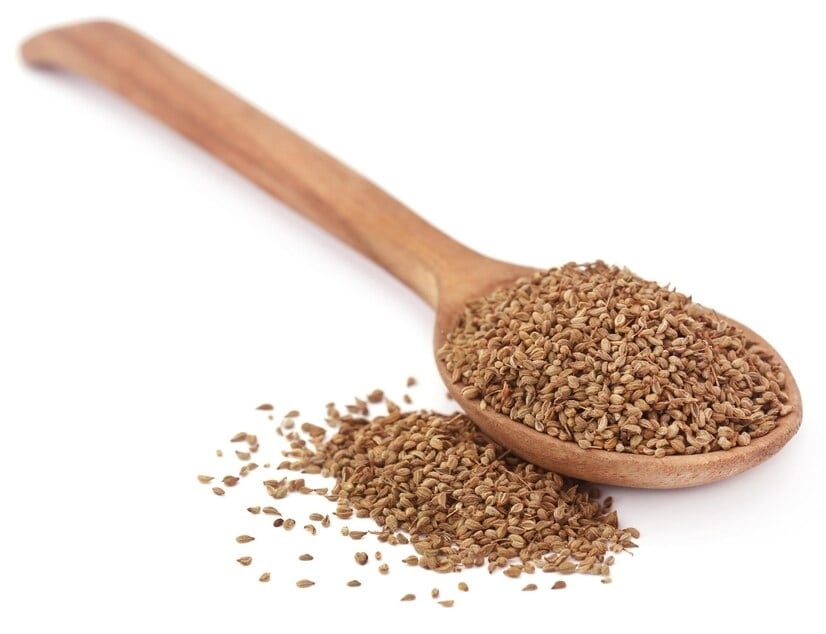Ajwain, also known as carom seeds, is a popular spice that has been used for centuries in traditional medicine and culinary applications. Native to India, ajwain is valued not only for its distinctive flavor but also for its numerous health benefits. In this comprehensive article, we will delve into the various ways in which ajwain can promote your well-being.
Understanding Ajwain
Ajwain, scientifically known as Trachyspermum ammi, is a small, oval-shaped seed that belongs to the Apiaceae family. It has a pungent and slightly bitter taste, making it a vital ingredient in Indian cuisine. Ajwain seeds are often used whole or crushed, and their essential oil is also prized for its therapeutic properties.
Nutritional Profile of Ajwain
Before we explore its health benefits, let’s take a closer look at the nutritional composition of ajwain seeds:
- Fiber: Ajwain seeds are a good source of dietary fiber, which aids in digestion and helps maintain a healthy gut.
- Protein: They contain protein, making them a valuable addition to vegetarian diets.
- Vitamins: Ajwain is rich in essential vitamins, including vitamin A, vitamin C, niacin (vitamin B3), and riboflavin (vitamin B2).
- Minerals: It is a good source of minerals such as calcium, potassium, and phosphorus.
- Essential Oils: Ajwain seeds contain thymol, a powerful essential oil that contributes to many of its health benefits.
Ajwain’s Health Benefits
Improved Digestion
Ajwain has long been celebrated for its digestive properties. It helps alleviate indigestion, bloating, and flatulence by promoting the release of gastric juices and enzymes. Incorporating ajwain into your meals or consuming it with a pinch of salt can provide relief from common digestive issues.
Relief from Acidity and Heartburn
Suffering from acidity and heartburn? Ajwain’s carminative properties help reduce acidity levels in the stomach, providing quick relief from heartburn and acid reflux.
Aid in Weight Loss
Ajwain can aid in weight management due to its metabolism-boosting properties. The fiber in ajwain seeds helps control appetite, making you feel fuller for longer and reducing overeating.
Anti-Inflammatory Properties
Ajwain possesses anti-inflammatory properties that can be beneficial in managing various inflammatory conditions such as arthritis and asthma. Its essential oil, thymol, is known for its anti-inflammatory effects.
Respiratory Health
Inhaling steam infused with ajwain seeds can help alleviate respiratory issues like colds, coughs, and bronchitis. The antimicrobial properties of ajwain can also help fight respiratory infections.
Menstrual Pain Relief
For many women, ajwain is a natural remedy for relieving menstrual cramps and discomfort. Consuming ajwain tea or applying ajwain oil on the lower abdomen can provide relief.
Improved Cholesterol Levels
Some studies suggest that ajwain may help lower bad cholesterol levels (LDL cholesterol) in the blood, reducing the risk of heart disease.
Diabetes Management
Ajwain may assist in managing diabetes by helping regulate blood sugar levels. It does this by improving insulin sensitivity and reducing insulin resistance.
Skin Health
The antimicrobial and anti-inflammatory properties of ajwain make it effective in treating skin conditions such as acne and eczema. It can be used topically or consumed to promote healthier skin.
Dental Health
Ajwain’s antibacterial properties make it a valuable addition to oral care routines. Gargling with ajwain-infused water can help maintain oral hygiene and prevent bad breath.
How to Incorporate Ajwain into Your Diet
Now that we’ve explored the numerous health benefits of ajwain, let’s discuss how you can incorporate it into your daily diet:
- Ajwain Water: Drinking ajwain water in the morning on an empty stomach can aid digestion and boost metabolism.
- Ajwain Tea: Brew ajwain tea by steeping ajwain seeds in hot water. You can add honey or lemon for flavor.
- Spice Blends: Ajwain is a common ingredient in spice blends like garam masala and chaat masala.
- Cooking: Add ajwain seeds to various dishes, such as curries, lentil soups, and bread.
- Infused Oils: Use ajwain-infused oil for cooking or massage.
Precautions and Side Effects
While ajwain offers numerous health benefits, it should be consumed in moderation. Excessive intake may lead to adverse effects such as heartburn or irritation of the stomach lining. Pregnant women and individuals with certain medical conditions should consult their healthcare provider before incorporating ajwain into their diet.
Conclusion
Incorporating ajwain, or carom seeds, into your diet can provide a wide range of health benefits, from improved digestion and weight management to relief from respiratory issues and menstrual discomfort. However, it’s essential to use ajwain in moderation and consult with a healthcare professional if you have specific health concerns. By harnessing the power of this versatile spice, you can enhance your overall well-being and savor the delicious flavors it adds to your meals.



